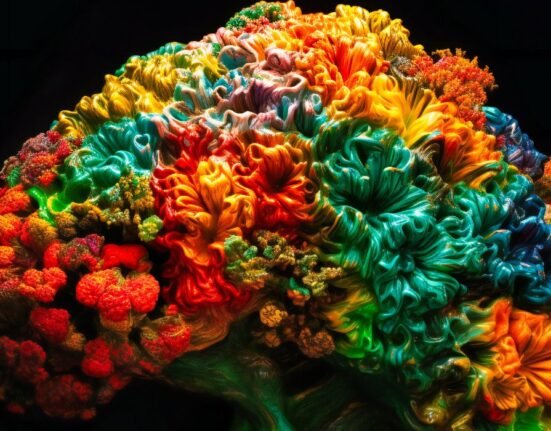INTJ stands for thinking, judgment, introversion, and intuition. It is one of the sixteen personality types found in the Myers-Briggs Type Indicator (MBTI), a personality test. Often called the Strategist or the Architect, INTJ personalities are extremely rational, inventive, and analytical. It represents an individual who draws energy from solitude, values ideas and concepts over facts and specifics, bases decisions on reason and logic, and is more comfortable being impulsive and adaptable.
Read More: The Five-Factor Model of Personality: All You Need To Know
They are motivated by alone time, concentrated on broad notions and ideas, guided by reason and logic, and well-organized. People with these personality tendencies tend to be analytical, creative, and strategic. INTJs are inquisitive, self-reliant, and diligent workers. INTJs frequently focus their analytical skills on systems to understand how they work. These personality types function best alone or in small groups and are frequently self-motivated. INTJs typically look for jobs and teams where they can collaborate with other extremely skilled individuals and live up to their high expectations. They frequently concentrate on their work rather than idle chatter or office politics. Careers in science, economics, law, justice, academia, and engineering are promising for INTJs.
Read More: The Psychology Behind Creativity
Key Characteristics of INTJ Personality
- INTJs are typically solitary workers who are introverted. Their work ethic and self-assurance are strengths. It can also be a liability, though, since they could come out as harsh or insensitive.
- An INTJ prefers to focus on abstract knowledge over specific specifics and sees the larger picture. They also have a propensity toward perfectionism.
- An individual possessing an INTJ personality type prioritizes reason and factual data over feelings. They feel awkward discussing emotions.
- INTJs favour environments that are structured and managed. As a result, they encourage planning well in advance. An INTJ may even resort to manipulation to further their objectives.
Read More: The Wallach-Kogan Creativity Test
- Introverted intuition is the primary cognitive function of the INTJ personality type, which means that INTJs may process information internally through patterns and perceptions. INTJs have a propensity for long-term planning and strategic thinking.
- Introverted Feeling is the third cognitive function of INTJs, which means that when making decisions, INTJs may consider the feelings of others. The introversion of INTJs can cause problems in friendships and love interactions.
- INTJs like to organize and manage the connection rather than participate in rites and formalities. But once they get along with someone, they usually stick with them, are trustworthy, and put a lot of effort into the connection.
- INTJs’ tertiary function, the weakest cognitive function, is Extroverted Sensing. This function allows people to process information through their senses and be in the present moment. Often, INTJs experience dissociation from their bodies and surroundings.
Read More: 10 Best Books to read for Personality Development in 2024
Cognitive Features of INTJ Personality
The MBTI uses a concept called a functional stack to analyze each personality. It is based on psychoanalyst Carl Jung’s theory of personality. The four cognitive functions mix and interact in different ways, with each being either introverted or extroverted. Every personality type has a primary function that defines the characteristics of that type. Auxiliary, tertiary, and inferior functions contribute in supporting roles to the dominant function in determining an individual’s personality traits.
Read More: A glance into the life of Introverts
The followings are critical cognitive features are important to INTJ:
- Introverted intuition is a tool used by INTJs to examine possibilities, patterns, and meanings. They are more interested in the meaning behind the facts than in just examining the actual data. People with an INTJ personality type enjoy thinking about the future and exploring possibilities.
- People with an INTJ personality type enjoy thinking about the future and exploring possibilities. They tend to make decisions based on logic. They organize their thoughts to see cause-and-effect relationships.
- INTJs use introverted feeling but, because it is a tertiary function, they do so to a lesser degree than they use the dominant and auxiliary functions. When making decisions, an INTJ who fully develops this component of their personality gives more thought to their ideals and emotions. They might therefore be more drawn to individuals and pursuits that share their ideals.
- In INTJs, extraverted sensing tends to be the least developed of their cognitive functions, but it does still exert some influence. This function allows an INTJ to process information through their senses. When this function is in play, people who are INTJ may feel that they are living in the moment and energized by the world around them.
In conclusion, those who are strategic, creative, and independent thinkers are represented by the INTJ personality type, which is defined by introversion, intuition, thinking, and judging preferences. They are best at deciphering complicated concepts, formulating long-term strategies, and carrying them out with rigor and dedication. Because of their introverted tendencies, INTJs can come across as reticent or distant, but they are ardently dedicated to their causes and strive for greatness in all they do. Their decision-making process is driven by their preference for objective and logic over emotions, and they place a high importance on structure and organization in the outside world.
In general, INTJs bring their special talents to a variety of disciplines, frequently becoming innovative problem solvers and visionary leaders. Overall are frequently characterized as strategic, analytical, autonomous people who thrive at long-term planning and problem-solving. Their motivation to pursue their objectives with tenacity and accuracy stems from their thirst for information and comprehension. Though they could come across as reticent or aloof in social settings, INTJs are renowned for their creativity, vision, and ability to think beyond the box. They are also fiercely loyal to their principles.
References +
- https://www.verywellmind.com/intj-introverted-intuitive-thinking-judging-2795988
- https://www.masterclass.com/articles/intj
- https://www.forbes.com/health/mind/intj-personality-type/













Leave feedback about this